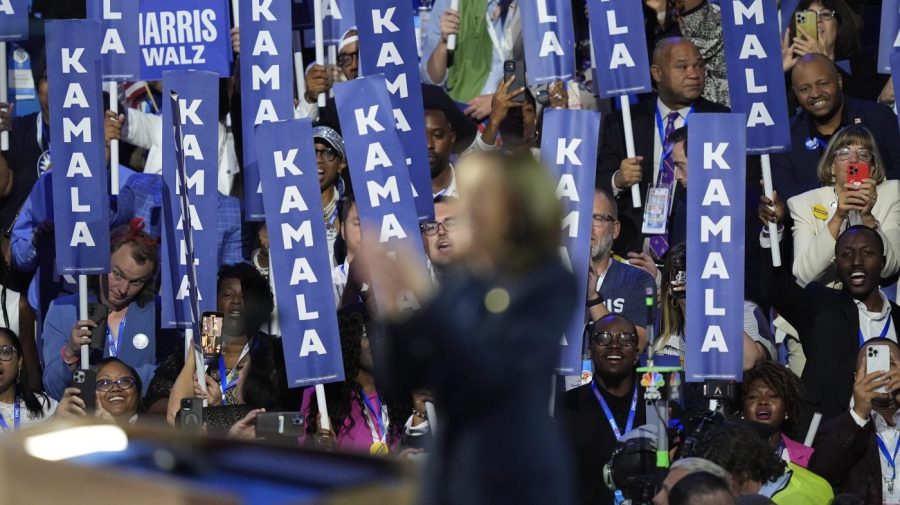
Democrats are anxious to rebuild their party on the heels of President Trump’s victory in November. But they have a major problem as they try to refashion their brand: The money isn’t there.
Democratic donors — from bundlers to small dollar donors — say they are still angry about the election results and uninspired by anything their side has put forward since then.
“I’ll be blunt here: The Democratic Party is f‑‑‑ing terrible. Plain and simple,” said one major Democratic donor. “In fact, it doesn’t get much worse.”
A second donor was equally as pointed. “They want us to spend money and for what? For no message, no organization, no forward thinking,” the donor said. “The thing that’s clear to a lot of us is that the party never really learned its lesson in 2016. They worked off the same playbook and the same ineffective strategies and to what end?”
Much of the consternation among the donor community stems from the unprecedented 2024 election cycle, where many felt misled by the party and former President Biden’s reelection campaign. Until the Democratic debate in June, donors and fundraisers were led to believe that Biden could once again defeat Trump, even as many had serious reservations about it.
When Biden badly botched the debate, inflaming fears about his age, donors felt like the campaign continued to hoodwink them, despite outwardly expressing their concerns to aides.
And even when former Vice President Kamala Harris took the reins as the Democratic nominee, donors say, they poured gobs of money into what was ultimately a campaign that ran an outdated strategy.
Then Harris lost. And morale among Democrats has been in the gutter ever since.
“This is worse than 2016,” the first Democratic donor said. “Our party is so weak and so diminished.”
Democratic strategist Steve Schale, who served as the director of the pro-Biden super PAC ‘Unite the Country,’ attributed some of the donor reluctance to fatigue, which he said happens after every election.
But, Schale acknowledged, “There is genuine frustration.”
“I’ve talked to a number of donors who just don’t have a lot of confidence after 2024 and want to see how people are thinking about issues differently,” he said.
While he said donors are taking calls, they are “asking harder questions which I think is a good thing.”
“Frankly a lot of donors I’ve talked to don’t think their voice mattered in 2024, so I’ve been doing more listening than talking,” Schale added.
Douglas Wilson, a North Carolina-based political consultant who has worked on fundraising for Democratic races, said donors have been “semi on the fence” over whether to contribute again so freely. Because Democrats are out of power, there’s little that they can do but fight from a disadvantaged position. And some donors, Wilson said, don’t feel like Democratic leaders on Capitol Hill are “fighting back hard enough” for larger-scale reforms
“This is having a trickle down effect,” Wilson said. “Grassroots donors want to see more fight and less text message requests asking for contributions.”
Another veteran campaign strategist who works closely with the Democratic National Committee said there’s a general uncertainty about the direction the party is going to go in order to start winning.
High-level donors are less likely, the strategist said, to give when they’re not sure what the plan is. Some have said that they don’t believe Democrats can win against Trump-style candidates, so they’re sitting things out for now
“Folks are saying right now ‘what’s the Democratic Party to me as an investment?’ I’m hearing from [DNC] members, they don’t really believe where we’re at right now. They don’t believe that we can counter Trump, so why lose dollars?” said the strategist.
Others have suggested that Democrats need to rely less on big donors and more on small donations in order to have credibility with the constituents they’re trying to win over. The working class coalition many say they need to court has shown a distaste for corporate spending, and even some moderates have suggested that the small dollar model popularized by Sen. Bernie Sanders (I-Vt.) could be the best path forward next cycle.
“If corporations and big donors are now rejecting the party, where else can they go for money if they’re not doing it the Bernie Sanders way?,” the strategist said.
Schale predicted the future of fundraising will look different from how it has in the past few cycles.
He said it’s “not so much that there is a moment when the spigot turns on for the DNC or a chosen super PAC.
“I believe we will see more groups raising smaller numbers, as donors look to invest in different things,” Schale said. “I think this is healthy, as we learned in 2020 when a ton of groups were at the table.”
Democratic strategist Jamal Simmons said donors will also gravitate back to the fold organically, when they see Trump increasingly hostile to progressive values. But for now, Simmons said, the donors are still grappling with the aftermath of an emotional and tumultuous campaign.
“For a lot of Democrats, it’s like we had a heartbreak and one way to deal with heartbreak is to curl up on your couch and eat ice cream,” he said. “But one way that will help them get over the heartbreak is how infuriating the new guy is.
And as the 2026 cycle inches closer, Simmons said he expects donors to rally again.
“Democrats like to be inspired so having more inspirational candidates will make that easier,” he said.












